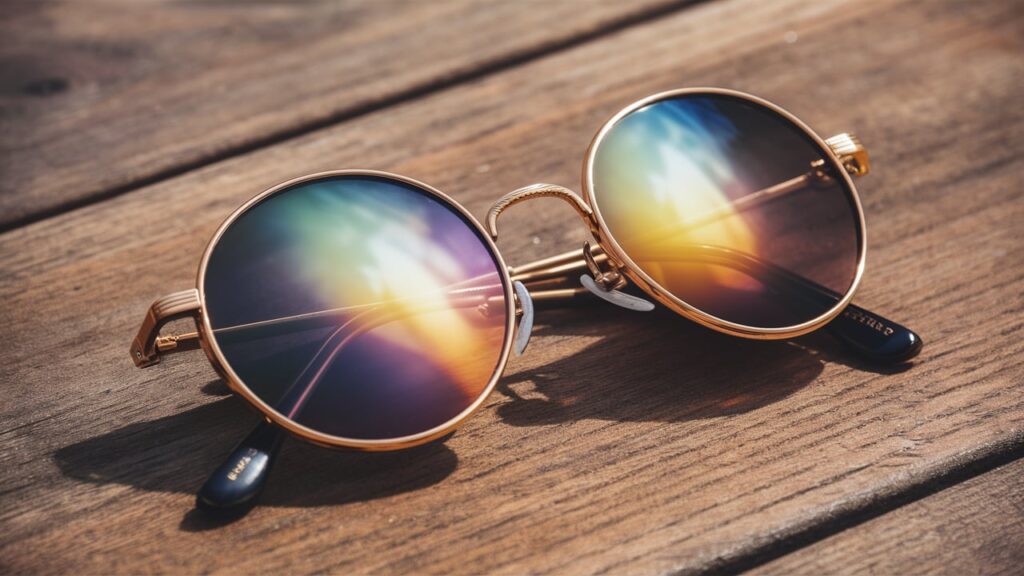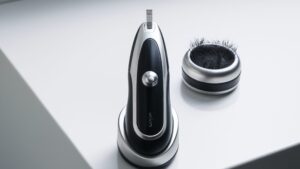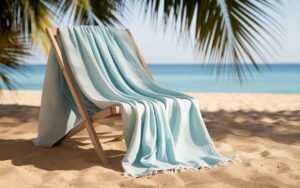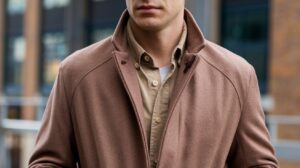Protecting your eyes from the sun’s harmful UV rays is vital. Sunglasses are not just a fashion accessory; they are crucial for your eye health.
UV protection standards ensure that the sunglasses you choose will shield your eyes effectively. Understanding these standards can help you make the right choice for outdoor safety. Not all sunglasses offer the same level of protection, and it’s important to know what to look for.
The right pair of sunglasses can prevent long-term eye damage, reduce glare, and enhance your overall comfort outdoors. In this blog post, we will explore the key UV protection standards and guide you in selecting the best sunglasses to safeguard your eyes. Stay tuned to learn how to keep your eyes safe and healthy.

Importance Of Uv Protection
Choosing the right sunglasses is crucial for eye health. The sun’s ultraviolet (UV) rays can harm your eyes. UV protection in sunglasses helps prevent this damage. It is essential to understand why UV protection matters and how it benefits you.
Harmful Effects Of Uv Rays
UV rays can cause serious eye problems. They may lead to cataracts, which cloud the eye’s lens. UV exposure can also result in macular degeneration, affecting your central vision. Photokeratitis, a painful eye condition, is another risk. Protecting your eyes from UV rays is vital to avoid these issues.
Benefits Of Uv Protection
UV protection in sunglasses offers many benefits. It reduces the risk of eye diseases caused by UV exposure. Sunglasses with UV protection shield your eyes from harmful rays. They also help maintain clear vision and overall eye health. Choosing sunglasses with proper UV protection is essential for safe outdoor activities.
Types Of Uv Rays
Choosing the right sunglasses protects your eyes from harmful UV rays. Understanding the types of UV rays helps you make an informed decision. There are two main types of UV rays: UVA and UVB. Both can harm your eyes in different ways.
Uva Rays
UVA rays have the longest wavelength. They penetrate deep into the eye. They can damage your retina over time. This damage can lead to serious eye conditions. Cataracts and macular degeneration are common issues. Sunglasses that block UVA rays are essential. They help protect your long-term eye health.
Uvb Rays
UVB rays have a shorter wavelength. They can damage the outer layers of your eye. Your cornea and lens are at risk. Exposure to UVB rays can cause painful sunburns on your eyes. It can also lead to cataracts. Sunglasses blocking UVB rays are crucial. They prevent immediate and future eye problems.
Uv Protection Standards
UV protection standards ensure sunglasses block harmful UV rays. This protects your eyes, enhancing outdoor safety and eye health. Choose sunglasses that meet these standards for optimal protection.
UV Protection Standards: Choosing Sunglasses for Outdoor Safety And Eye Health
When it comes to protecting your eyes from the sun, not all sunglasses are created equal. Understanding UV protection standards can help you make smarter choices, ensuring your sunglasses provide the necessary protection for your eyes. Let’s dive into the critical aspects of UV protection standards to keep your eyes safe and healthy.
###
International Standards
Different countries have their own standards for UV protection in sunglasses. In the United States, the American National Standards Institute (ANSI) requires sunglasses to block at least 99% of UVB rays and 95% of UVA rays.
In Europe, the CE mark indicates that sunglasses meet European health, safety, and environmental protection standards. These standards ensure that your eyes are shielded from harmful rays, no matter where you are.
###
Labeling And Certification
It’s essential to check labels and certifications when buying sunglasses. Look for labels that specify 100% UV protection or UV400. UV400 means the lenses block all light rays with wavelengths up to 400 nanometers, including UVA and UVB rays.
Certified labels like the ANSI Z80.3 or the European CE mark provide an added layer of confidence. These certifications ensure the sunglasses meet rigorous testing standards, giving you peace of mind when you’re out and about.
Choosing sunglasses with proper UV protection is a simple yet effective way to safeguard your eye health. Next time you shop for a new pair, remember these standards and certifications to make an informed choice. Your eyes will thank you!
Choosing The Right Sunglasses
Choosing sunglasses with UV protection is crucial for outdoor safety and eye health. Protect your eyes from harmful UV rays. Select sunglasses that block 100% of UVA and UVB rays.
### Choosing the Right Sunglasses
Picking the perfect pair of sunglasses is not just about fashion. It’s about protecting your eyes from harmful UV rays and ensuring your outdoor safety. With so many options available, it can be overwhelming. However, focusing on the lens material and lens coatings can make your decision much easier.
###
Lens Material
Choosing the right lens material is crucial for both comfort and protection. Polycarbonate lenses are a popular choice. They are lightweight, durable, and offer excellent UV protection.
If you want something more scratch-resistant, consider glass lenses. They provide superior optical clarity but can be heavier and more prone to breaking.
For a balance between durability and clarity, opt for Trivex lenses. They are similar to polycarbonate but offer better clarity and are slightly more impact-resistant.
###
Lens Coatings
Lens coatings can enhance the functionality of your sunglasses. UV coating is a must. It blocks 100% of harmful UVA and UVB rays.
Polarized lenses reduce glare, making them ideal for driving or water activities. They can help you see clearer and reduce eye strain.
Mirror coatings are another option. They reflect light, reducing the amount entering your eyes. This can be helpful in very bright conditions.
Some lenses come with anti-scratch and anti-reflective coatings. These additions can extend the life of your sunglasses and improve your visual comfort.
When selecting your next pair of sunglasses, think about your daily activities. Are you driving a lot or spending time on the water? This can help you choose the coatings that will benefit you the most.
Have you ever found yourself squinting even with sunglasses on? That might be a sign that you need better lens coatings. Investing in quality sunglasses now can save you from eye issues down the line.
Remember, your eyes deserve the best protection. Choose wisely and enjoy your time outdoors with confidence.
Features To Consider
Choosing sunglasses for outdoor safety involves checking UV protection standards. Look for 100% UV protection to shield your eyes from harmful rays. Polarized lenses reduce glare for better vision.
### Features to Consider
When choosing sunglasses for outdoor safety and eye health, it’s essential to understand what features to prioritize. Let’s dive into two critical aspects: polarization and lens color. These elements significantly impact how effectively your sunglasses protect your eyes and enhance your visual experience.
Polarization
Polarized lenses are a game-changer. They reduce glare from reflective surfaces like water, snow, and glass. This is especially helpful if you spend a lot of time driving, skiing, or fishing.
Imagine driving on a bright day. The sun’s glare can be blinding and dangerous. Polarized sunglasses can make a world of difference by cutting through that glare, giving you a clearer and safer view.
However, not all polarized lenses are created equal. Look for sunglasses that offer high-quality polarization to ensure maximum glare reduction without distorting your vision.
Lens Color
The color of your lenses isn’t just a fashion statement. It plays a crucial role in how you perceive your surroundings. Different lens colors serve different purposes.
Gray lenses are excellent for maintaining true color and reducing overall brightness. They’re great for everyday wear.
Brown or amber lenses enhance contrast and depth perception, making them ideal for activities like hiking or cycling.
If you enjoy water sports, consider blue or green lenses. They reduce glare from the water and enhance the contrast, making it easier to see underwater.
Remember, the best lens color for you depends on your lifestyle and the activities you engage in. Think about where you’ll be wearing your sunglasses most often and choose accordingly.
By paying attention to polarization and lens color, you can make a more informed choice that enhances both your eye health and your outdoor experience. What’s your favorite lens color and why? Share your thoughts in the comments!
Sunglasses For Different Activities
Choosing the right sunglasses ensures both protection and style. Different activities demand different types of sunglasses. Selecting the right pair is crucial for eye health and safety.
Sports And Outdoor Activities
For sports and outdoor activities, durability is key. Look for sunglasses with impact-resistant lenses. Polycarbonate lenses are a great choice. They offer both strength and UV protection. Wrap-around styles provide extra coverage. This keeps dust and wind out of your eyes. Polarized lenses reduce glare from surfaces like water and snow. This is essential for activities like fishing and skiing.
Everyday Use
Everyday use sunglasses should be comfortable. Lightweight frames are ideal for long wear. Ensure the sunglasses offer 100% UV protection. This guards against harmful rays. Stylish designs can also complement your look. Consider lens color for different environments. Grey lenses reduce overall brightness. Brown lenses enhance contrast. Always choose sunglasses that fit well. They should not slip down your nose. This ensures consistent protection and comfort.
Caring For Your Sunglasses
When it comes to maintaining the longevity and effectiveness of your sunglasses, proper care is essential. Not only does this ensure they continue to protect your eyes from harmful UV rays, but it also helps you get the most out of your investment. Let’s dive into some practical tips for caring for your sunglasses.
Proper Cleaning Techniques
Keeping your sunglasses clean is crucial for clear vision and durability. Use a microfiber cloth to wipe your lenses. It prevents scratches and removes dirt effectively.
Avoid using your shirt or paper towels. They can scratch the lens surface and degrade the UV coating.
For deeper cleaning, rinse your sunglasses under lukewarm water. Apply a drop of mild dish soap and gently rub with your fingers. Rinse and dry with a clean microfiber cloth.
Never use harsh chemicals or household cleaners. They can damage the lens coatings, reducing UV protection.
Storage Tips
Proper storage can extend the lifespan of your sunglasses. Always use a sturdy case when not in use. This protects them from accidental drops and scratches.
Avoid placing your sunglasses face down on surfaces. This can lead to scratches and damage to the lenses.
If you don’t have a case, store them in a safe spot away from sharp objects. A soft pouch can also be a temporary solution.
Keep your sunglasses away from extreme temperatures. Heat can warp the frames and damage the lenses.
How do you care for your sunglasses? Share your tips in the comments below!
Common Myths About Uv Protection
Many people think they understand UV protection, but myths often cloud their judgment. Misunderstandings about sunglasses can lead to poor choices, risking eye health. Let’s debunk some common myths about UV protection.
Dark Lenses And Uv Protection
Many believe darker lenses provide better UV protection. This is not true. Lens color does not indicate UV protection. Some dark lenses may not block UV rays at all. Always check the label for 100% UV protection.
Price And Quality
Another myth is that expensive sunglasses guarantee better UV protection. This is false. Price does not always reflect quality. Affordable sunglasses can offer the same UV protection as pricier ones. Look for the UV protection label, not the price tag.
Frequently Asked Questions
What Is The Standard Uv Protection For Sunglasses?
The standard UV protection for sunglasses is 100% UV400. This means they block 100% of UVA and UVB rays.
What Type Of Sunglasses Do Eye Doctors Recommend?
Eye doctors recommend sunglasses with 100% UV protection. Polarized lenses reduce glare. Wraparound styles offer better coverage.
What Is The Uv Code For Sunglasses?
The UV code for sunglasses is UV400. It means the lenses block 100% of UVA and UVB rays.
What Is The Best Uv Protection Rating For Sunglasses?
The best UV protection rating for sunglasses is UV400. It blocks 99-100% of UVA and UVB rays, ensuring maximum eye protection.
Conclusion
Protecting your eyes with the right sunglasses is essential. UV rays can harm your eyes. Choose sunglasses with 100% UV protection. Look for labels that confirm this. Polarized lenses reduce glare. They’re great for driving or water activities. Comfort matters too.
Ensure they fit well and stay in place. Prioritize eye health for safer, more enjoyable outdoor time. Your eyes will thank you.








